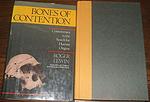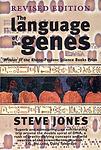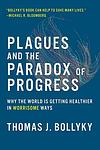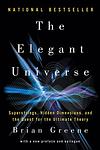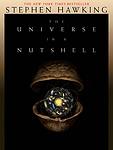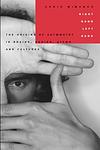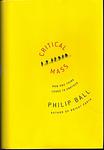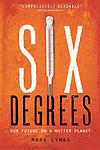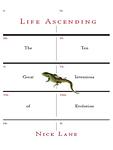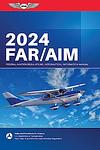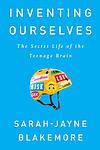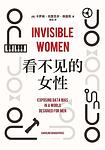Royal Society Prizes for Science Books
This is one of the 286 lists we use to generate our main The Greatest Books list.
-
Living With Risk by the British Medical Association Board of Science
"Living With Risk" explores the concept of risk and its impact on our daily lives. Drawing on extensive research and expert analysis, the book delves into various aspects of risk, including health, safety, and environmental concerns. It provides valuable insights into how individuals, communities, and policymakers can navigate and manage risks effectively, promoting a balanced approach that prioritizes both protection and progress. With practical advice and thought-provoking perspectives, this comprehensive guide offers a deeper understanding of risk and empowers readers to make informed decisions in an increasingly complex world.
-
Bones Of Contention: Controversies In The Search For Human Origins by Roger Lewin
"Bones of Contention: Controversies in the Search for Human Origins" delves into the complex world of paleoanthropology, exploring the heated debates and conflicting theories surrounding the study of human evolution. Through a meticulous examination of fossil discoveries, scientific methodologies, and the personalities involved, the book sheds light on the ongoing quest to unravel the mysteries of our ancient past. With a balanced and engaging approach, the author navigates through the controversies, providing readers with a captivating exploration of the ever-evolving field of human origins.
-
The Emperor's New Mind by Roger Penrose
"The Emperor's New Mind" explores the relationship between human consciousness and artificial intelligence. The author delves into the nature of the mind, arguing against the idea that it can be replicated by a computer. Penrose presents a thought-provoking analysis of the limitations of artificial intelligence and proposes that human consciousness is rooted in quantum physics, challenging conventional theories. Through a blend of mathematics, philosophy, and physics, the book raises profound questions about the nature of intelligence and the potential of machines to truly replicate human thought.
-
Wonderful Life: The Burgess Shale And The Nature Of History by Stephen Jay Gould
"Wonderful Life: The Burgess Shale And The Nature Of History" explores the fascinating Burgess Shale fossil site in Canada and its profound impact on our understanding of evolution. Stephen Jay Gould delves into the diverse and bizarre creatures that once inhabited this ancient ecosystem, highlighting their significance in challenging traditional views of the evolutionary process. Through vivid storytelling and scientific analysis, Gould presents a thought-provoking argument that the history of life is contingent and unpredictable, emphasizing the importance of contingency in shaping the course of evolution.
-
The Rise And Fall Of The Third Chimpanzee by Jared Diamond
"The Rise and Fall of the Third Chimpanzee" explores the fascinating similarities and differences between humans and our closest living relatives, the chimpanzees. Jared Diamond delves into the evolutionary history of Homo sapiens, examining our complex behaviors, language, art, and technology. He also addresses the darker aspects of human nature, such as violence and environmental destruction, and raises thought-provoking questions about our future as a species. Through a captivating blend of science, anthropology, and history, Diamond offers a compelling exploration of what it means to be human and the challenges we face in our quest for survival.
-
The Making Of Memory by Steven Rose
"The Making of Memory" explores the intricate workings of the human brain and the fascinating process of memory formation. Drawing on extensive research and scientific studies, the author delves into the complex interplay between genetics, environment, and personal experiences that shape our memories. From the biological mechanisms involved in memory consolidation to the impact of emotions and trauma, this thought-provoking book offers a comprehensive understanding of how memories are created and stored within our minds.
-
The Language Of The Genes by Steve Jones
"The Language of the Genes" explores the intricate world of genetics and its impact on human evolution, behavior, and society. Through a captivating blend of scientific research, historical anecdotes, and personal experiences, the author delves into the fascinating language of our genes, unraveling the mysteries of inheritance, genetic diseases, and the complex interplay between nature and nurture. With a keen eye for detail and a passion for storytelling, the book offers a thought-provoking exploration of genetics that challenges conventional wisdom and sheds light on the profound influence of our genes on our lives.
-
The Consumer's Good Chemical Guide by John Emsley
"The Consumer's Good Chemical Guide" is a comprehensive and accessible book that provides valuable information about the chemicals found in everyday products. Written by John Emsley, this guide aims to educate consumers about the potential risks and benefits associated with various chemicals, enabling them to make informed decisions about the products they use. With its clear explanations and practical advice, this book empowers readers to navigate the complex world of chemicals and make choices that promote their health and well-being.
-
Plague's Progress by Arno Karlen
"Plague's Progress" is a thought-provoking exploration of the history and impact of infectious diseases on human civilization. From the Black Death to modern-day epidemics, the book delves into the scientific, social, and cultural aspects of plagues, highlighting their devastating consequences and the efforts made to combat them. With a blend of historical accounts and scientific analysis, the author presents a compelling narrative that sheds light on the complex relationship between humans and the pathogens that have shaped our world.
-
The Wisdom Of Bones by Alan Walker, Pat Shipman
"The Wisdom of Bones" is a captivating exploration of human evolution and the remarkable insights gained from the study of ancient remains. Written by renowned scientists, the book delves into the fascinating world of paleoanthropology, revealing the intricate details of our ancestors' lives and the clues they left behind in their bones. Through vivid storytelling and meticulous research, the authors shed light on the origins of humanity, offering a thought-provoking journey through time and the remarkable wisdom that can be gleaned from the study of bones.
-
Guns, Germs, and Steel by Jared Diamond
The book is a comprehensive exploration of the different trajectories of human societies throughout history. It argues that environmental factors, rather than racial or cultural differences, are the primary reason why some societies developed more advanced technology and political systems. The author uses a multidisciplinary approach, drawing from fields such as geography, evolutionary biology, and linguistics, to support his thesis. The book covers a wide range of topics, including the domestication of plants and animals, the invention of writing, and the spread of diseases.
-
The Man Who Loved Only Numbers by Paul Hoffman
"The Man Who Loved Only Numbers" is a captivating biography that delves into the life of a brilliant mathematician. From his early years as a child prodigy to his groundbreaking contributions in number theory, the book explores the eccentricities and obsessions that consumed his life. With a unique blend of mathematical concepts and personal anecdotes, the biography paints a vivid portrait of a man who was truly devoted to the world of numbers.
-
The Elegant Universe by Brian Greene
"The Elegant Universe" by Brian Greene is a captivating exploration of the fundamental principles of physics, delving into the intricate world of string theory and its potential to unify the laws of the universe. Through vivid explanations and thought-provoking analogies, Greene takes readers on a journey from the early discoveries of Newton and Einstein to the cutting-edge theories of quantum mechanics and relativity. With a blend of scientific rigor and accessible language, the book offers a compelling narrative that challenges our understanding of space, time, and the nature of reality itself.
-
Mapping The Deep by Robert Kunzig
"Mapping The Deep" explores the mysterious and awe-inspiring world beneath the ocean's surface. Through captivating storytelling and scientific research, the book delves into the history of deep-sea exploration, revealing the incredible discoveries and challenges faced by scientists and explorers. From the eerie abyssal plains to the vibrant ecosystems of hydrothermal vents, the author takes readers on a journey to understand the profound impact of the deep sea on our planet and the potential it holds for future exploration and understanding.
-
The Universe In A Nutshell by Stephen Hawking
"The Universe In A Nutshell" is a captivating exploration of the mysteries and complexities of the universe, written by renowned physicist Stephen Hawking. In this book, Hawking delves into the fundamental principles of physics, from the nature of space and time to the existence of multiple dimensions. With his signature clarity and wit, he takes readers on a mind-bending journey through black holes, quantum mechanics, and the origins of the universe, offering a profound understanding of the cosmos and our place within it.
-
Right Hand, Left Hand by Chris McManus
"Right Hand, Left Hand" explores the fascinating world of handedness and its impact on human behavior, culture, and evolution. Chris McManus delves into the history of handedness, from ancient cave paintings to modern scientific studies, revealing the complex interplay between genetics, brain structure, and societal influences. With a blend of scientific research, personal anecdotes, and cultural analysis, McManus offers a thought-provoking exploration of why most people are right-handed and how handedness shapes our perception, language, and creativity.
-
A Short History Of Nearly Everything by Bill Bryson
This book is a comprehensive exploration of scientific knowledge, covering a wide range of topics from the Big Bang to the rise of civilization. The author aims to understand how we got from nothing at all to where we are now, exploring subjects such as geology, chemistry, paleontology, astronomy, and particle physics. The book also delves into the lives of the scientists behind the discoveries, making the complex concepts accessible to the average reader.
-
Critical Mass: How One Thing Leads To Another by Philip Ball
"Critical Mass: How One Thing Leads To Another" explores the concept of criticality and its pervasive influence in various natural and human-made systems. Through a captivating blend of scientific explanations and real-world examples, the author delves into the interconnectedness of phenomena, illustrating how small changes can lead to dramatic and unpredictable outcomes. From the behavior of avalanches and forest fires to the dynamics of financial markets and social networks, this thought-provoking book sheds light on the underlying principles that govern our complex world.
-
Electric Universe: How Electricity Switched On The Modern World by David Bodanis
"Electric Universe: How Electricity Switched On The Modern World" explores the fascinating history and impact of electricity on society. From the discovery of static electricity to the invention of the light bulb and the development of power grids, the book delves into the scientific breakthroughs and the individuals behind them. It highlights how electricity revolutionized various industries, transformed communication, and improved the quality of life for people around the world. Through engaging storytelling and insightful analysis, the book showcases the profound influence of electricity in shaping the modern world.
-
Stumbling On Happiness by Daniel Gilbert
In this thought-provoking book, the author explores the concept of happiness and why humans often struggle to find it. Drawing on psychological research and personal anecdotes, he challenges our assumptions about what makes us happy and reveals the flaws in our ability to predict our own future emotions. With wit and insight, the author offers a fresh perspective on the pursuit of happiness, urging readers to question their own beliefs and embrace the uncertainty that comes with it.
-
Six Degrees: Our Future On A Hotter Planet by Mark Lynas
"Six Degrees: Our Future On A Hotter Planet" by Mark Lynas is a thought-provoking exploration of the potential consequences of global warming. Lynas presents a compelling argument by examining the various temperature increases and their corresponding impacts on our planet, from rising sea levels and extreme weather events to mass extinctions and the collapse of ecosystems. Through extensive research and scientific evidence, the book paints a grim picture of the future if urgent action is not taken to mitigate climate change, emphasizing the importance of collective responsibility and immediate measures to prevent further environmental degradation.
-
The Age Of Wonder by Richard Holmes
"The Age of Wonder" explores the scientific and cultural advancements of the late 18th and early 19th centuries, known as the Romantic Age. Richard Holmes delves into the lives and achievements of prominent figures such as Joseph Banks, Humphry Davy, and William Herschel, who revolutionized fields like astronomy, chemistry, and botany. Through vivid storytelling, Holmes captures the spirit of curiosity, imagination, and wonder that defined this era, highlighting the profound impact it had on shaping our modern understanding of science and the world.
-
Life Ascending by Nick Lane
"Life Ascending" explores the remarkable and diverse mechanisms that have shaped life on Earth, from the origins of life to the evolution of complex organisms. Nick Lane delves into the fundamental questions of biology, unraveling the mysteries of how life emerged from the primordial soup and how it has evolved over billions of years. Through captivating storytelling and scientific insights, Lane takes readers on a journey through the intricate web of life, revealing the extraordinary adaptations and innovations that have allowed organisms to conquer new environments and thrive in the face of challenges.
-
The Wavewatcher's Companion by Gavin Pretor-Pinney
"The Wavewatcher's Companion" by Gavin Pretor-Pinney is a captivating exploration of waves in all their forms, from the crashing waves of the ocean to the invisible waves of sound and light. With a mix of scientific knowledge and poetic prose, the author takes readers on a journey through the fascinating world of waves, revealing their beauty, power, and influence on our everyday lives. From the physics behind wave formation to the cultural significance of waves in art and literature, this book offers a unique and thought-provoking perspective on the wonders of the natural world.
-
The Information by James Gleick
"The Information" explores the history and significance of information, from its origins in the form of language and writing to the modern digital age. James Gleick delves into the profound impact of information on society, science, and technology, highlighting key figures such as Claude Shannon and Alan Turing. Through captivating anecdotes and thought-provoking analysis, Gleick reveals how information has shaped our understanding of the world and revolutionized communication, ultimately challenging our notions of knowledge and reality.
-
The Particle At The End Of The Universe by Sean Carroll
"The Particle At The End Of The Universe" explores the fascinating world of particle physics, focusing on the discovery of the Higgs boson. Sean Carroll takes readers on a journey through the intricate experiments and theories that led to this groundbreaking discovery, shedding light on the fundamental nature of the universe and the role of the Higgs boson in our understanding of reality. With a blend of scientific explanations and personal anecdotes, Carroll presents a captivating exploration of the mysteries of the universe and the relentless pursuit of scientific knowledge.
-
Stuff Matters: The Strange Stories Of The Marvellous Materials That Shape Our Man Made World by Mark Miodownik
In this captivating book, the author explores the fascinating world of materials that surround us, revealing their hidden stories and remarkable properties. From the glass in our windows to the concrete in our buildings, Miodownik takes readers on a journey through the history, science, and cultural significance of everyday materials. With a blend of personal anecdotes, scientific explanations, and historical context, he showcases the marvels of materials and their impact on our lives, ultimately highlighting the beauty and complexity of the man-made world we inhabit.
-
Adventures In The Anthropocene: A Journey To The Heart Of The Planet We Made by Gaia Vince
"Adventures in the Anthropocene: A Journey to the Heart of the Planet We Made" takes readers on a captivating exploration of the Earth's current epoch, the Anthropocene, where human activities have become the dominant force shaping the planet. Through vivid storytelling and immersive experiences, the author delves into various corners of the world, from the depths of the Amazon rainforest to the bustling streets of Mumbai, to uncover the profound impact of human actions on the environment. With a blend of scientific research, personal narratives, and thought-provoking insights, this book offers a compelling and urgent call to action to address the challenges of our rapidly changing planet.
-
The Invention Of Nature: Alexander Von Humboldt’s New World by Andrea Wulf
"The Invention of Nature" is a biographical account of Alexander von Humboldt, a 19th-century explorer, scientist, and naturalist who revolutionized the way we understand the natural world. Andrea Wulf chronicles Humboldt's travels across South America, his encounters with indigenous peoples, and his groundbreaking scientific discoveries that challenged prevailing notions of the natural world. Humboldt's ideas about interconnectedness and the unity of nature were ahead of their time and continue to influence environmentalism and conservation today. Wulf's book is a masterful exploration of one of history's most fascinating and influential figures.
-
Testosterone Rex: Unmaking The Myths Of Our Gendered Minds by Cordelia Fine
"Testosterone Rex: Unmaking The Myths Of Our Gendered Minds" challenges the long-standing belief that testosterone is the primary driver of gender differences. The book explores the scientific evidence that debunks this myth and argues that societal expectations and cultural influences play a significant role in shaping gender roles and behaviors. Through a combination of research, wit, and humor, the author dismantles the notion of Testosterone Rex, offering a fresh perspective on the complex interplay between biology and society in understanding gender.
-
Inventing Ourselves: The Secret Life Of The Teenage Brain by Sarah-Jayne Blakemore
"Inventing Ourselves: The Secret Life Of The Teenage Brain" explores the fascinating world of adolescent brain development, shedding light on the unique cognitive and emotional processes that shape teenage behavior. Drawing from cutting-edge research and personal anecdotes, the book delves into the complexities of adolescence, offering valuable insights into the impact of social media, risk-taking behavior, and mental health on teenagers. It ultimately emphasizes the importance of understanding and supporting teenagers during this critical period of brain development.
-
Invisible Women: Exposing Data Bias In A World Designed For Men by Caroline Criado Perez
This book sheds light on the pervasive gender data gap that exists in our society, revealing how the world we live in is largely designed for men. Through extensive research and compelling examples, the author exposes the ways in which women are systematically excluded and overlooked in various aspects of life, from healthcare and transportation to the workplace and public policy. By highlighting the consequences of this data bias, the book calls for a more inclusive and equitable approach to designing and collecting data, ultimately advocating for a world that recognizes and addresses the needs and experiences of all genders.
-
Explaining Humans by Camilla Pang
"Explaining Humans" is an insightful and thought-provoking book that explores the complexities of human behavior and neurodiversity. Written by Camilla Pang, a neurodivergent scientist, the book offers a unique perspective on understanding the world through the lens of autism and ADHD. With a blend of personal anecdotes, scientific research, and philosophical reflections, Pang delves into topics such as emotions, social interactions, and the pursuit of knowledge, providing readers with a deeper understanding of what it means to be human.
-
Entangled Life by Merlin Sheldrake
"Entangled Life" explores the fascinating world of fungi and their intricate relationships with other organisms. From the underground networks that connect trees and plants to the role of fungi in shaping ecosystems, the book delves into the hidden realms of mycelium and its impact on our planet. With captivating storytelling and scientific insights, the author reveals the astonishing diversity and resilience of fungi, challenging our understanding of life itself.
-
A (Very) Short History Of Life On Earth: 4.6 Billion Years In 12 Pithy Chapters by Henry Gee
"A (Very) Short History Of Life On Earth: 4.6 Billion Years In 12 Pithy Chapters" is a concise exploration of the vast expanse of time that has shaped life on our planet. From the origins of life to the evolution of complex organisms, the book takes readers on a captivating journey through the key milestones and transformations that have occurred over the course of 4.6 billion years. With wit and clarity, the author presents a fascinating overview of Earth's biological history, offering a deeper understanding of our place in the grand tapestry of life.
The Royal Society, 35 Books
The Royal Society Science Books Prize is an annual £25,000 prize awarded by the Royal Society to celebrate outstanding popular science books from around the world. It is open to authors of science books written for a non-specialist audience, and since it was established in 1988 has championed writers such as Stephen Hawking, Jared Diamond, Stephen Jay Gould and Bill Bryson. In 2015 The Guardian described the prize as "the most prestigious science book prize in Britain".
Added 6 months ago.
This list has a weight of 4%. To learn more about what this means please visit the Rankings page.
Here is a list of what is decreasing the importance of this list:
- List: only covers 1 year (yearly book awards, best of the year, etc)
- List: only covers 1 specific genre
- Voters: are mostly from a single country/location
If you think this is incorrect please e-mail us at [email protected].

